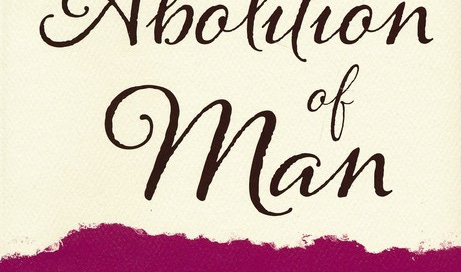Reading C.S. Lewis’s books can be challenging for the best of readers. I have to read pages, chapters, and even entire books more than once to feel like I understand the thoughts he expresses within them. The Abolition of Man is a good example of this exercise.
This text is a compilation of three lectures given by Lewis at Cambridge in 1943. I read all three at one sitting a few months ago. I was not satisfied with my initial read and began reading them again. This time, I went to YouTube and found a professor discussing each of the lectures and decided to hear what he had to say. He was boring, actually, so I will not give a reference, but he did give me some historical context.
The metaphorical light turned on for me, though, when I stumbled upon a recent Wall Street Journal article on a survey about American values.1 The headline caught my eye, but it was the subtitle, “Patriotism, Religion, and Hard Work Hold Less Importance,” that made me think of Lewis’s “Men Without Chests.” I am not debating the validity and reliability of this survey, though I could (it was online and had 1000 respondents). Instead, I have questions.
Why are we seeing such a shift in morality in American culture? Why aren’t Americans proud to be Americans anymore? What happened to this generation of 20-somethings to make them wary of having children? Why is religion not really important to that same generation? If there are no absolutes, where does a person find peace and contentment?
Lewis’s lecture could be read as a warning for just this occasion. Essentially, these men without chests are devoid of objective values. They do not hold any truths to be self-evident because relativism holds no absolute truth. Instead, it leads to men without chests, men who lack virtue and suffer from moral decay.
In this first lecture, Lewis ends, “We make men without chests and expect of them virtue and enterprise. We laugh at honour and are shocked to find traitors in our midst. We castrate and bid the geldings be fruitful” (26). 2
Let’s bring this back around to why, as an educator in a classical Christian school, I should be interested in Lewis’s arguments. I do believe that there is absolute Truth. I do believe that even young children know the difference between right and wrong. It is within us even when we developmentally cannot explain why. I believe that I am made in God’s image and as such have the ability to understand what is good and what is sinful. I want to teach young people that they can gain strength and confidence in these same things.
Lewis would ask me, “How can you expect your students to be virtuous and hardworking if you do not teach them that these are good and true and worthy endeavors?” He would tell me education that lacks truth, virtue, and beauty creates men without chests who think it is okay to identify as a woman. Or nothing at all.
Zittner, A. (2023, March 27). America pulls back from values that once defined It, WSJ-NORC poll finds. Wall Street Journal. Retrieved April 4, 2023, from https://www.wsj.com/articles/americans-pull-back-from-values-that-once-defined-u-s-wsj-norc-poll-finds-df8534cd
Lewis, C. S. (2001). Men without chests. In The abolition of man: Or reflections on education with special reference to the teaching of English in the upper forms of schools (Paperback ed., pp. 1-26). HarperCollins.
artofmanliness. (2014, July 11). "We make men without chests and expect of them virtue and enterprise." CS Lewis [Photograph]. Instagram.





